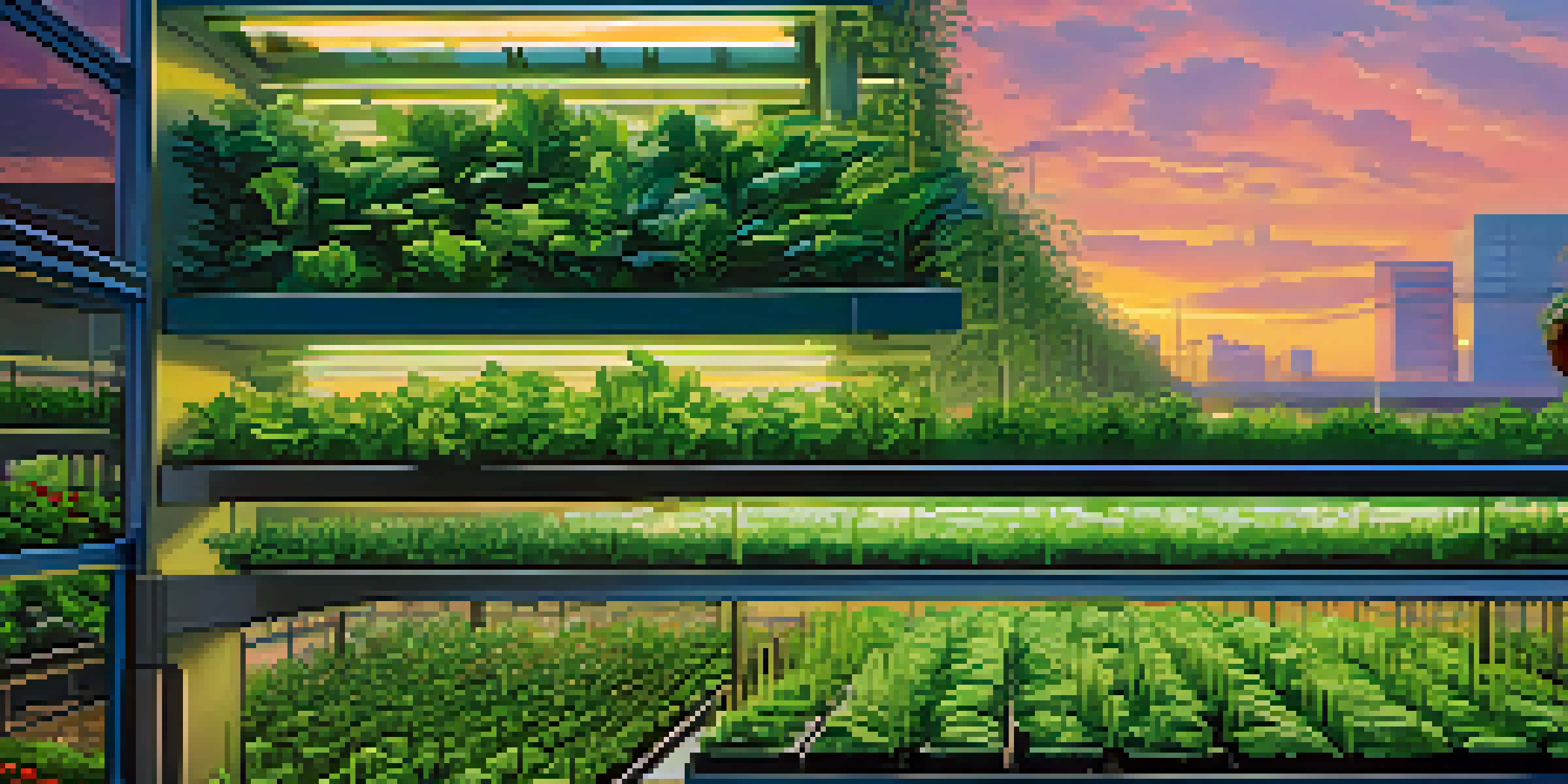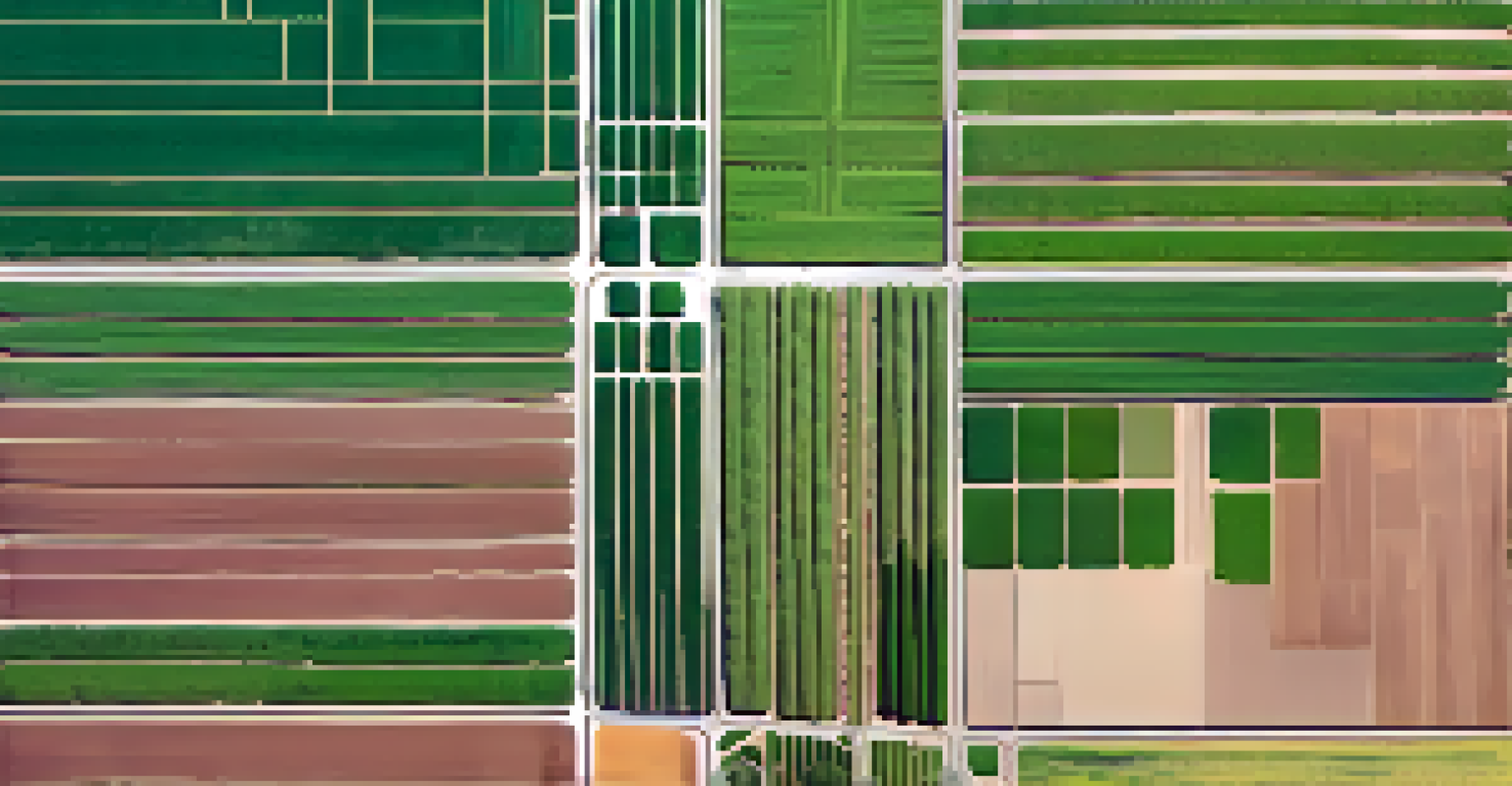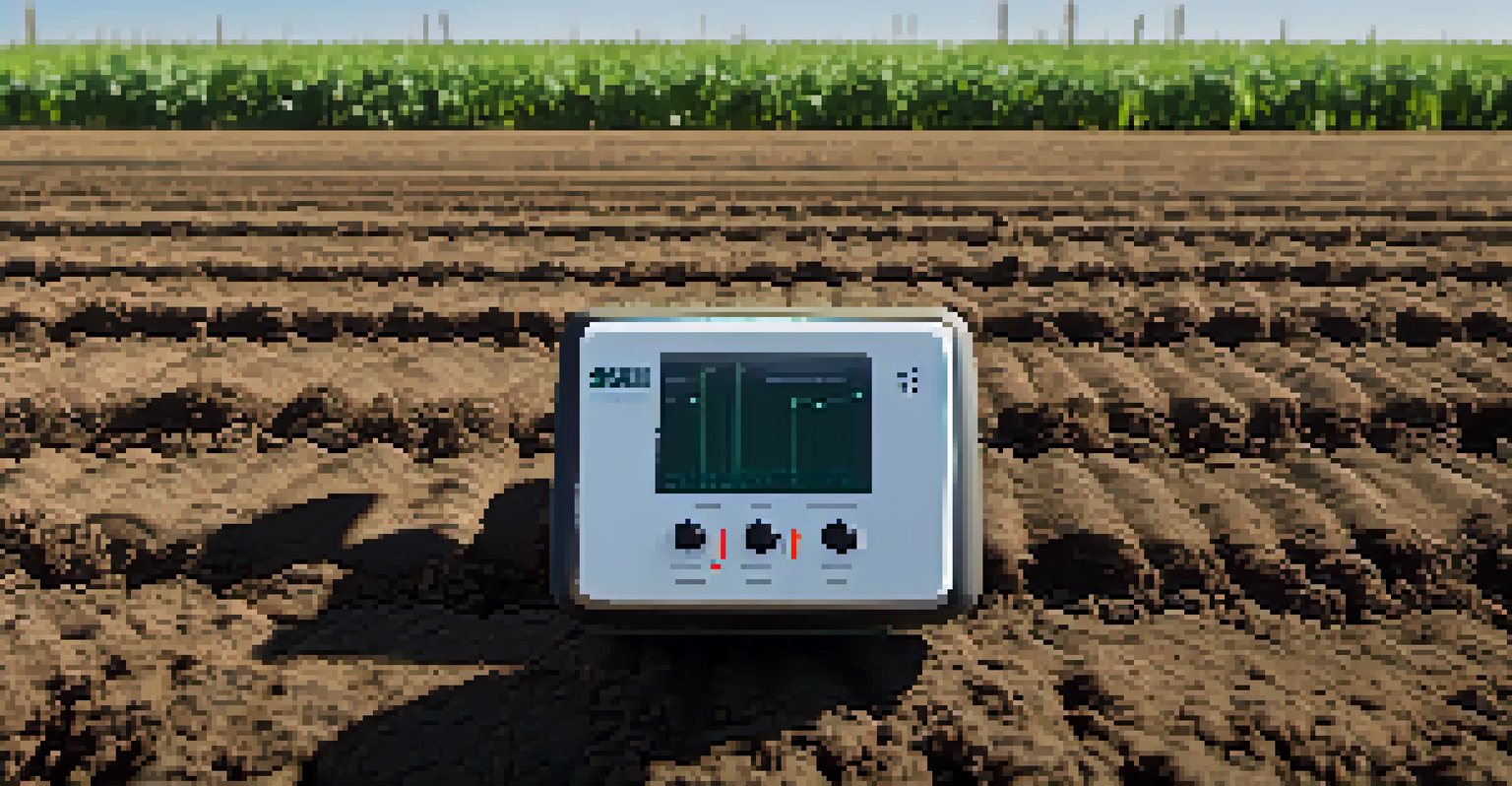Tech Innovations: Tucson's AgTech Startups Leading Change

Introduction to Tucson's AgTech Scene
Tucson, Arizona, is becoming a hotbed for agricultural technology, or AgTech, startups. This vibrant community is leveraging advanced technologies to improve farming practices and sustainability. With its unique climate and rich agricultural history, Tucson provides a fertile ground for innovation in this sector.
Sustainability is no longer about doing less harm. It's about doing more good.
As the demand for food increases and environmental concerns rise, these startups are stepping up to offer solutions that benefit both farmers and consumers. They focus on everything from water conservation to crop monitoring, transforming traditional farming methods into more efficient practices. This shift not only supports local farmers but also contributes to the global push for sustainable food production.
In this article, we’ll explore some of the leading AgTech startups in Tucson and how they are making significant changes in agriculture. By highlighting their innovative approaches, we aim to shed light on the exciting developments happening right in our backyard.
The Role of Sustainability in AgTech
Sustainability is at the core of many AgTech innovations emerging from Tucson. As the agricultural industry faces challenges like water scarcity and soil degradation, startups are developing technologies that help mitigate these issues. For instance, companies are creating smart irrigation systems that optimize water usage, allowing farmers to conserve this precious resource.

Moreover, sustainable practices not only benefit the environment but can also improve a farm's bottom line. By using data analytics and IoT (Internet of Things) devices, farmers can make informed decisions that reduce waste and increase yield. This dual focus on profit and planet is what makes Tucson’s AgTech sector particularly compelling.
Tucson's AgTech Innovations Thrive
AgTech startups in Tucson are leveraging advanced technologies to improve farming practices, focusing on sustainability and efficiency.
Ultimately, the emphasis on sustainability is not just a trend; it’s a necessity for the future of agriculture. Tucson’s AgTech startups are leading the charge, proving that it’s possible to be both environmentally responsible and economically viable.
Highlighting Key Tucson AgTech Startups
Several AgTech startups in Tucson are pushing the boundaries of innovation and sustainability. One notable example is Desert Bloom EcoFarm, which uses vertical farming techniques to grow fresh produce in urban settings. This approach not only maximizes space but also reduces transportation emissions by bringing food production closer to consumers.
Innovation distinguishes between a leader and a follower.
Another standout is the startup CropX, which specializes in soil monitoring technology. Their sensors provide real-time data to farmers, allowing them to understand soil health and optimize their farming practices. This proactive approach can lead to increased crop yields and reduced resource usage, showcasing how technology can transform traditional farming.
These startups, along with many others in Tucson, are exemplifying the spirit of innovation that defines the region. Their unique solutions to agricultural challenges are not only changing how we farm but also inspiring others to rethink the future of food production.
Community Support for AgTech Innovations
The success of Tucson's AgTech startups can be attributed to a robust support system within the community. Local universities, such as the University of Arizona, play a crucial role by fostering research and development in agricultural sciences. This collaboration between academia and industry helps startups access vital resources and expertise.
In addition, local incubators and accelerators, like Startup Tucson, provide mentorship and funding opportunities for emerging AgTech companies. These initiatives create an ecosystem where innovation can thrive, allowing startups to scale their solutions effectively. Networking events and community workshops further encourage collaboration and knowledge-sharing among entrepreneurs.
Community Drives AgTech Success
Local support from universities and incubators plays a crucial role in fostering innovation and growth within Tucson's AgTech sector.
Ultimately, the community's commitment to supporting AgTech innovation is vital for the sector's growth. By working together, Tucson's residents and organizations are paving the way for a more sustainable agricultural future.
The Impact of Tech on Traditional Farming
The integration of technology into traditional farming practices is revolutionizing how agriculture operates. For many farmers in Tucson, adopting AgTech solutions means increased efficiency and productivity. Technologies like precision agriculture allow farmers to apply inputs like water and fertilizers more judiciously, reducing waste and costs.
Moreover, tech innovations enable farmers to monitor crop health in real time, leading to timely interventions when issues arise. This proactive approach can dramatically improve yields and minimize losses, ultimately contributing to food security. As a result, many traditional farmers are embracing these new tools rather than resisting change.
The blending of technology with established practices represents a significant shift in the agricultural landscape. Tucson's AgTech startups are not just enhancing how farming is done; they are redefining the very essence of agriculture itself.
Challenges Facing AgTech Startups
Despite the promising landscape, Tucson’s AgTech startups face several challenges as they strive to innovate. One major hurdle is access to funding; while there are resources available, competition for investment is fierce. Many startups must navigate a complex landscape to secure the capital needed to grow and scale their solutions.
Additionally, regulatory hurdles can pose significant obstacles for AgTech companies. As they develop new technologies, they must also ensure compliance with agricultural regulations, which can vary widely by region. This compliance can be time-consuming and may slow down the pace of innovation.
Challenges in the AgTech Landscape
Despite their potential, Tucson's AgTech startups face challenges such as funding access and regulatory compliance that can hinder their progress.
However, many startups are finding creative ways to overcome these barriers. By building strong partnerships and leveraging community support, they are navigating challenges while continuing to push the boundaries of what’s possible in agriculture.
The Future of AgTech in Tucson
Looking ahead, the future of AgTech in Tucson appears bright. With a growing number of startups entering the space, the city is poised to become a leader in agricultural innovation. As technology continues to evolve, we can expect to see even more groundbreaking solutions that address the pressing challenges of our time.
Moreover, as awareness of sustainable practices increases, more farmers are likely to turn to AgTech for solutions. This shift could lead to a more significant transformation in the industry, with Tucson at the forefront of this change. The potential for collaboration among startups, research institutions, and local businesses is immense.

In summary, Tucson's AgTech scene is not just about technology; it's about creating a sustainable future for agriculture. With continued support and innovation, the region can serve as a model for others looking to harness technology for positive change.